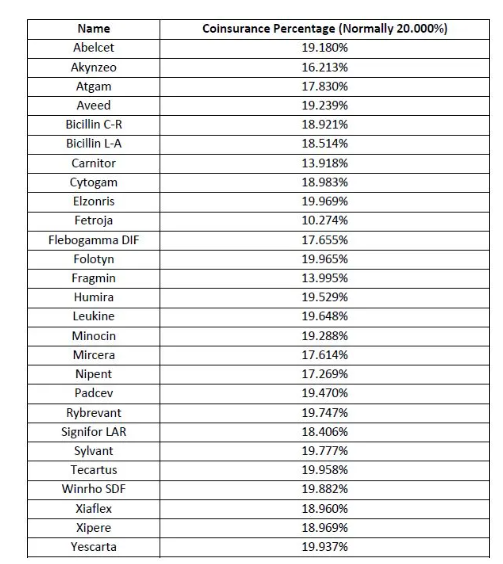Beginning in April, rebates can save Medicare beneficiaries more money. Expect to save between $1 to $390. On Wednesday, the White House stated that 27 different pharmaceuticals will now be eligible for Medicare Part B refunds because their prices had risen faster than the inflation rate.
In April, conventional Medicare and Medicare Advantage beneficiaries could experience coinsurance savings ranging from $1 to $390 for the average dose of impacted Medicare Part B medications. Pharmaceutical firms will reimburse Medicare for these rebates.
Seniors enrolled in Medicare do not need to do anything before visiting the pharmacy to receive discounts, according to Chiquita Brooks-LaSure of the Centers for Medicare and Medicaid Services. The price will be automatically modified, Brooks-LaSure added. Only your out-of-pocket expenses will be different (cheaper).
Depending on how frequently a medicine is used, the “rebate program” might result in savings ranging from a single dollar to several hundred dollars, according to Brooks-LaSure. Although Medicare customers will begin to experience savings in April, medication manufacturers will not be billed for rebates until 2025, and the Medicare Trust Fund will get the refunds.
This rebate is the first of its kind to be implemented. As a result of the Inflation Reduction Act, which was signed into law in August last year, drug manufacturers are required to pay for rebates if they raise prices over the rate of inflation.
The White House believes 1,200 medications would have been eligible for refunds under the new legislation if it had been in force in 2021.
Brooks-LaSure believes that the inflation rebate idea, as a whole, provides a significant incentive for pharma firms not to increase their prices over the rate of inflation. According to White House officials, the savings would vary based on a person’s coverage package.
According to Meena Seshamani, head of the Center for Medicare, the amount an individual would get depends on several factors. Seshamani said that depends on the nature of their extra coverage. And if they have comprehensive coverage that covers out-of-pocket expenses, that would absorb part or all of it.
It also relies on the patient’s dosage and treatment procedure because their out-of-pocket expenses are affected by the dosage of the medication they take. Because of those complexities, Seshamani states it’s hard to say that there is precisely this much money, which makes it difficult to come up with that total estimate because there are all these factors in play.
The White House stated that prescription medications susceptible to rebates would be modified quarterly.
Below are the 27 drugs subject to Medicare inflation rebates and coinsurance adjustment rates:

